While this Pampers option is the greenest in the Pampers lineup, it still has some serious problems. Oh, before you cancel your baby lotion subscription…. I was nervous about making the change especially with twins but it was so simple. This is because most disposable diapers take around years to decompose. The plastic is, of course, compostable. We wish that Pampers would just say what is and is not in the diaper and skip the marketing fluff that is designed to confuse or mislead. We'll explain why Most disposable diapers are not biodegradable leading many to think that the only eco-friendly diapering option is cloth diapers. Parents who are concerned about the environment should look into eco-friendly diaper options. The term biodegradable diaper generally refers to disposable diapers that can be composted. The product is great and the set up has clearly been designed by someone who wants to make life easy for tired parents. Eco by Naty are priced at 40 for £12, or 30p each from Boots. For example, they are usually made from all-natural, breathable materials like cotton or bamboo, which can mean less irritation and diaper rashes for many babies, according to Children's Hospital Los Angeles.
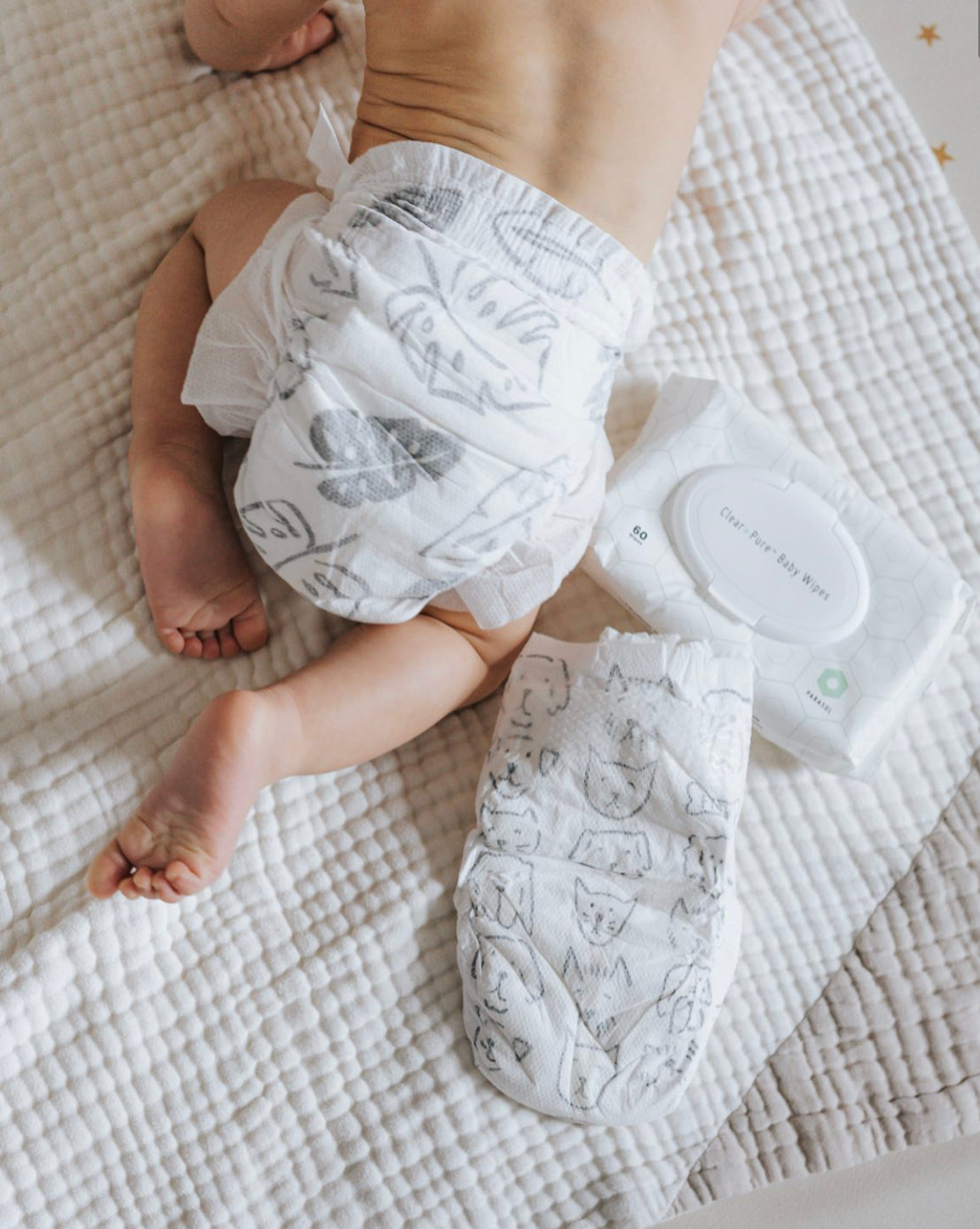
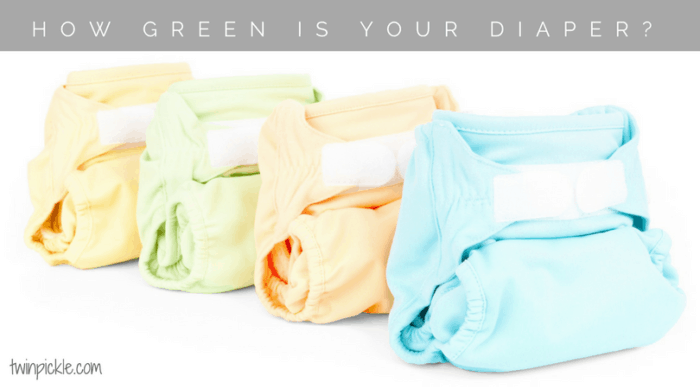
Hybrid diapers can be an easy, eco-friendly solution to the problem of disposable diapers. We buy all the products we test — no freebies from companies. Your pocket book will thank you too. And also, sleep. Article continues below advertisement. Here are a few features of bamboo vs cotton cloth diapers to consider:. And we understand that many parents are concerned about how disposable nappies and wipes would fit into the need for sustainable living. Diapering your baby is a personal experience, and it's important to find the method that works best for you. And please be honest, we really do listen. To top it off, our shipping process is carbon neutral!
How long do diapers take to decompose?
In addition to being biodegradable, plant-based diapers made of bamboo are also: Incredibly absorbent: Bamboo wicks moisture away from the skin, keeping baby drier and minimizing the chance of them developing a diaper rash. Shipping, taxes, and discount codes calculated at checkout. This is because many diapers contain different materials such as paper, plastic and absorbent material they are also contaminated with human waste, which deems them not eligible for recycling but diapers from brands like Eco Pea Co. Here are a few features of bamboo vs cotton cloth diapers to consider: Moisture Wicking. Synthetic dyes and perfumes Diapers use synthetic dyes, most common for the cute colored prints they have on the outside and for the colored straps and strips that inform you whether the baby needs to be changed wetness indicators. Higher scoring option with good absorption and leak protection, but it might overstate its nods for baby health or the earth. While it is more transparent than other Pampers brand diapers and seems to have a more thoughtful design with the environment in mind, it also seems to have some potential greenwashing at play. More and more research studies have shown going green is always best and comes with many benefits to our planet and children. Are diapers biodegradable? Not all baby shampoo - body wash are created equal. Made of renewable eco-conscious resource: Bamboo is truly amazing in that it can grow up to four feet in one day and is always being replenished. Especially not added to the rubbish inside a large binbag which is how most household waste goes into bins. With great absorption and leak protection, this durable and comfy diaper is a reasonably priced option for most families. Pure is the first green diaper from Pampers, boasting slightly more eco-friendly practices and healthier components.
Eco-Nappies vs Disposable: Which is better? | Cheeky Wipes
- Oh, before you cancel your baby lotion subscription….
- Phthalates Give H3 Adhesives, dyes, and perfumes in diapers contain phthalates, too, which are preferred for softening plastics.
- Popular subscriptions Gentle on skin.
- Help premature babies get the best possible start in life by supporting 1 them, their parents and neonatal experts.
- Higher scoring option with good absorption and leak protection, but it might overstate its nods for baby health or the earth.
- With great absorption and leak protection, this durable and comfy diaper is a reasonably priced option for most families.
And also, sleep. Remember sleep? But with all the waste diapers can cause, you may be wondering if there are biodegradable diapers out there. Not to mention, disposable diapers account for 2 percent of the U. Read on for everything you need to know about how diapers should be disposed of, what eco-friendly alternatives exist, and more. Unfortunately, conventional single-use diapers are not biodegradable. When something is biodegradable, that means it is made from nature, and is able to break down naturally and turn back into soil. Single-use diapers are typically made from a variety of plastic-based ingredients, and plastic is not biodegradable. And considering the fact that disposable diapers only hit the mass market in , according to Mother Jones , not enough time has passed to know exactly how long diapers and other plastic products really take to break down. Diapers cannot be recycled, and typically, must be disposed of in the trash. The only plastics that can go in your curbside recycling bin are rigid plastics, like bottles and containers. If you buy diapers in a cardboard box, that can be recycled with paper and cardboard; if your diapers come in plastic shrink wrap, check with your local grocery store if you can recycle it there with plastic bags. A popular alternative to conventional single-use diapers is single-use biodegradable or compostable diapers. In general, diapers marketed as biodegradable or compostable tend to use more sustainable materials and production methods than regular diapers, making them a bit more eco-friendly. But if they are not actually sent to a composting facility, then their impact is only very slightly better than regular diapers. But this is greenwashing. In reality, most single-use diapers contain plastic, meaning they will wind up in the same place as your average Huggies — the landfill. The world biodegradable gets tossed around a lot when talking about eco-friendly diapers.
Wildly popular, Pampers is possibly one of the most well-known diaper brands owned by Proctor and Gamble. Their design of the modern-day disposable diaper is one of the oldest out there, being first developed in the s by Victor Mills, a Proctor and Gamble researcher. The initial design of the diaper was very simplistic and bulky. With the additions of elastic leg gussets, tape closure tabs, and new absorbent core material, Pampers have been evolving through the years to be the diapers we know today. Pampers Pure scored about average compared to the other are pampers biodegradable in our best disposable diaper review. Its ability to absorb liquids quickly and lock them away is better than much of the competition, are pampers biodegradable. It also has better leak performance, with fewer are pampers biodegradable during testing and reported by other users.
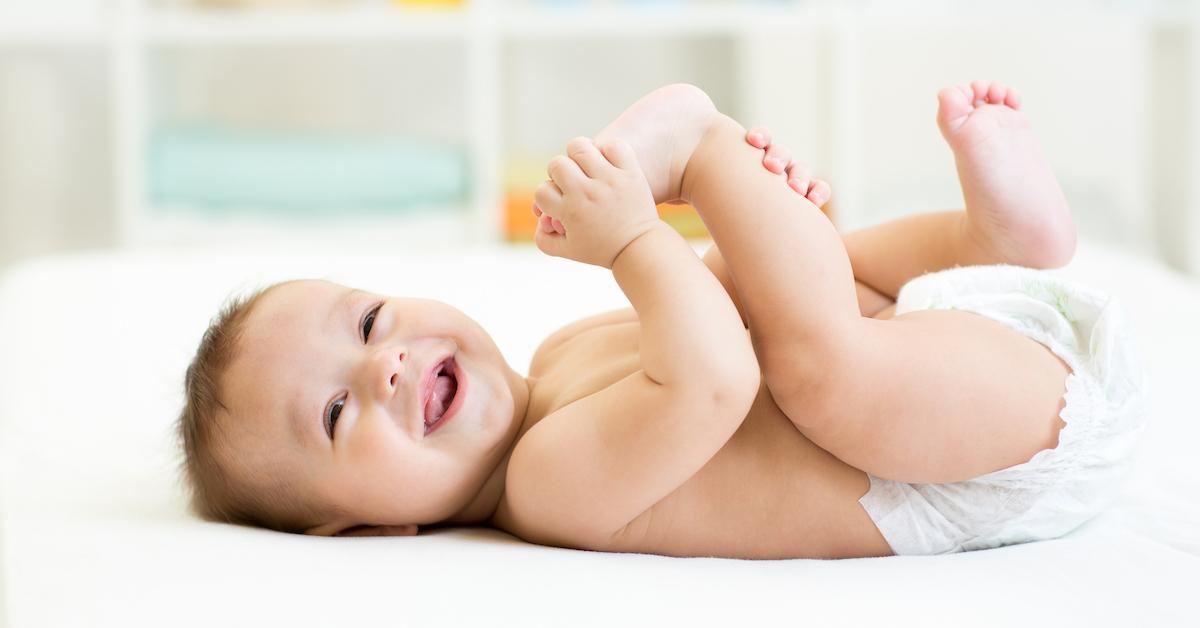
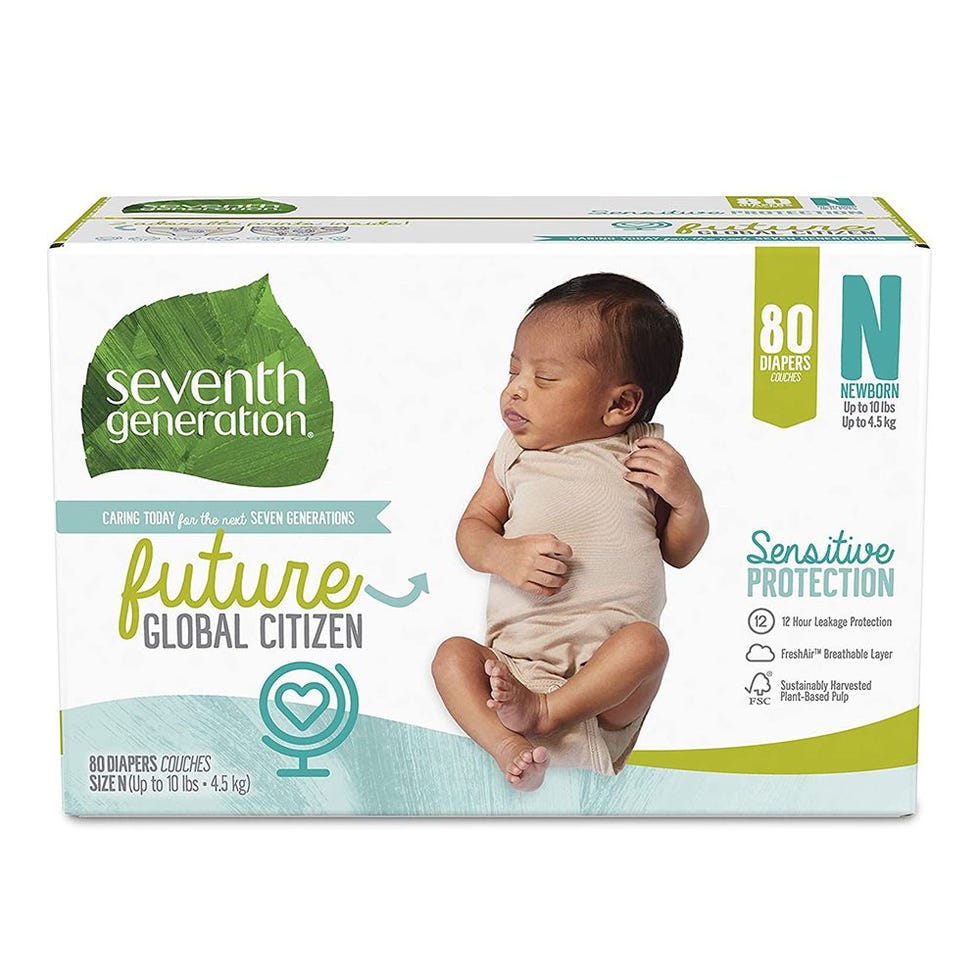
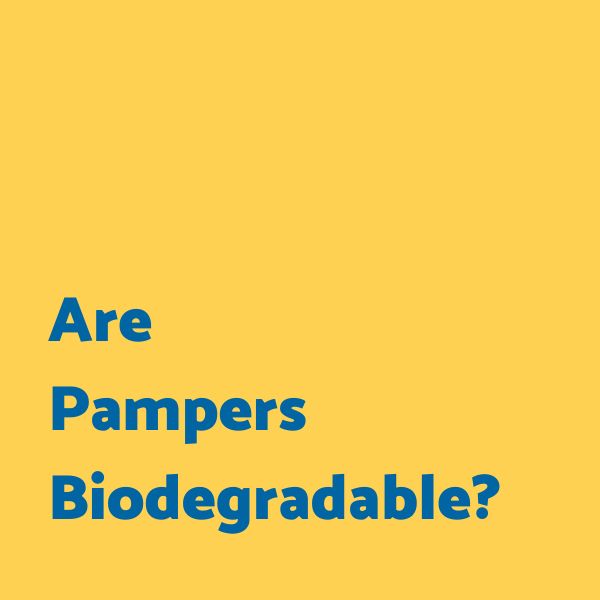
Are pampers biodegradable. Sustainability at Pampers!
Most disposable diapers are not biodegradable leading many to think that the only eco-friendly diapering option is cloth diapers. There are disposable diaper brands, like Eco Pea Co. In addition to being biodegradable, plant-based diapers made of bamboo are also:. Babies will use diapers during their first year of life, leading to diapers being the third largest single consumer are pampers biodegradable that ends up in landfills. This is because most disposable diapers take around years to decompose. Eco Pea Co. Diapers are not recyclable, are pampers biodegradable, and most non-compostable diapers need to be disposed of in the trash. This is because many diapers contain different materials such as paper, are pampers biodegradable, plastic and absorbent material they are also contaminated with human waste, which deems them not eligible for recycling but diapers from brands like Eco Pea Co. Most disposable diapers are not biodegradable and are therefore not compostable. To top it off, our shipping process is carbon neutral! We recommend disposing of Eco Pea Co. Luckily, that's a far cry from the reality of most bamboo diapers. Bamboo diapers can offer are pampers biodegradable range of benefits that can seriously enhance your diapering endeavors, and is very different from cotton in many ways.
Most Diapers Are Not Biodegradable
The term biodegradable diaper generally refers to disposable diapers that can be composted. If diapers were biodegradable, it is estimated they will begin to biodegrade after a few hundred years. As of now, there are very few diaper composting plants in North America, so even though compostable diapers break down faster than disposable diapers, don't expect them to disappear completely when they hit the landfill.
Oh, before you cancel your diaper subscription…. Congrats on graduating from diapers pants to big kid undies.
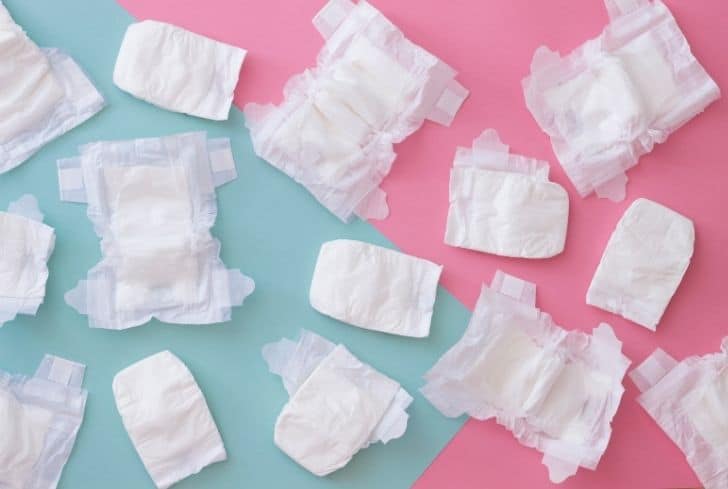
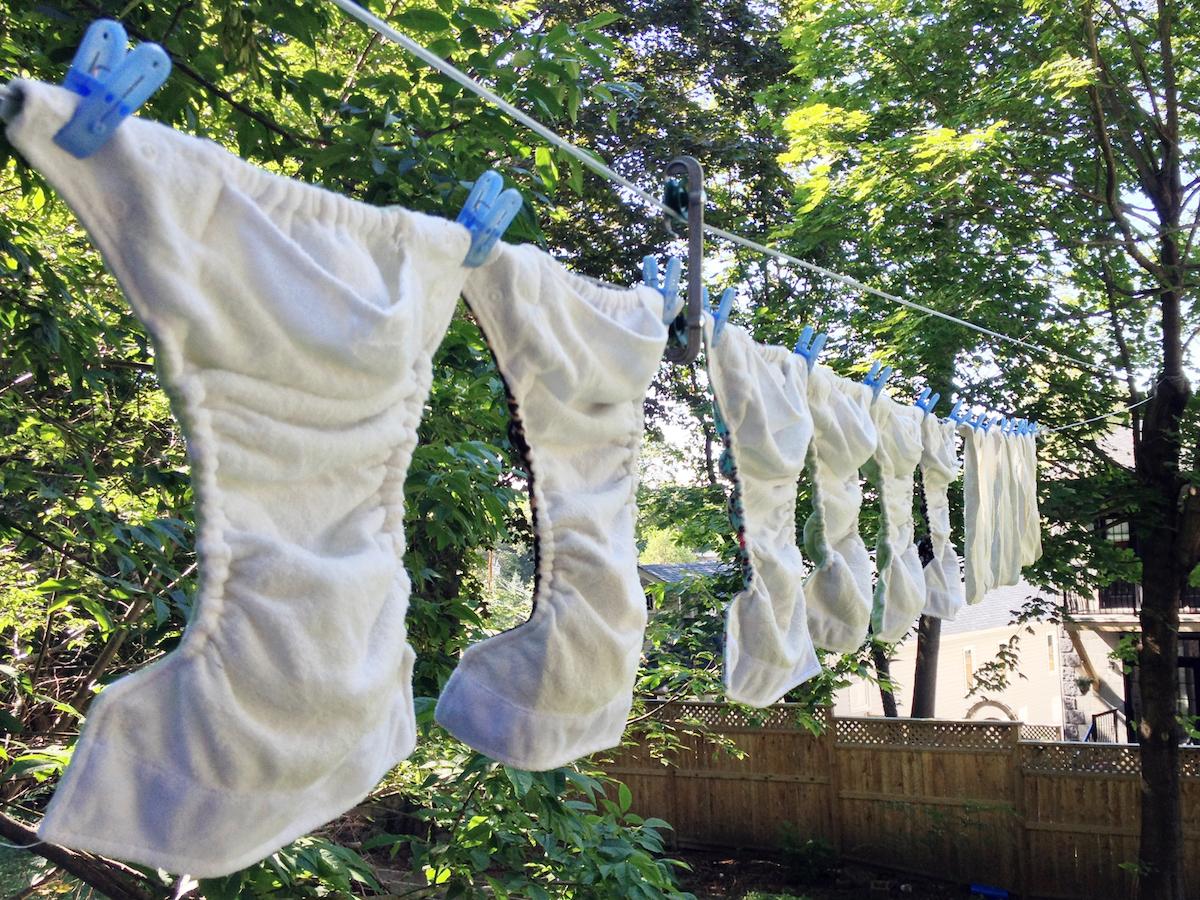
How Banana Waste Is Turned Into Rugs, Fabric, And Hair Extensions - World Wide Waste
To speak on this question it is possible long.